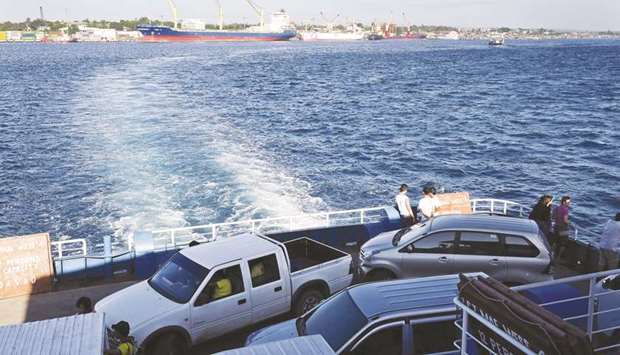The Philippines is pushing ahead with more development plans for the Muslim-minority south of the archipelago, namely the Mindanao region, which is in need for a variety of economic impulses.
Apart from earlier plans to use Islamic bonds, or sukuk, to fund infrastructure projects – as part of Philippine President Rodrigo Duterte’s massive “Build.Build.Build” programme – in the region where about one fifth of the 25.5mn-population belong to the Muslim faith, the Mindanao Development Authority (MinDA) is now eyeing Islamic financial institutions as a source of funds to develop agricultural and other halal industries in the southernmost provinces.
“There is interest from Islamic financial institutions to support particularly the agriculture sector in Mindanao, as well as the halal industry which is seen as a growing sector here,” MinDA’s public affairs division chief Adrian Tamayo told reporters at a press conference held in Davao City on January 9.
However, the funding by Islamic institutions all depends on a proper legislation for the sector in the Philippines, for which many stakeholders are still waiting. To release core Islamic financing vehicles such as sukuk and utilise other Islamic funding structures, a reliable and sustainable legal and regulatory framework has to be put in place first.
In fact, a respective bill which seeks to organise and regulate Islamic banks in the Philippines passed the committee level at the house of representatives in August last year but is still waiting for congressional approval.
“If approved by Congress, the monetary board of the Philippine central bank may eventually authorise the establishment of Islamic banks,” Tamayo said.
“It may also authorise conventional banks to engage in Islamic banking arrangements, including structures and transactions, through a designated Islamic banking unit within a bank,” he added.
He also noted that there were Islamic institutions from the Middle East and Indonesia that wanted to enter Mindanao after peace has been reached with the passage of the Bangsamoro Organic Law, a federal law enacted in July 2018 providing for the establishment of an autonomous political entity known as the Bangsamoro Autonomous Region, replacing the Autonomous Region in Muslim Mindanao.
A legal framework for Islamic finance would complement the Bangsamoro Organic Law and encourage foreign Islamic institutions to look for business in Mindanao. Foreign Islamic banks may also be authorised to establish banking operations in the Philippines in accordance with a 1994 law which opened the Philippine banking sector for foreign banks and financial institutions, but so far did not attract Islamic banks owing to the absence of clear Islamic finance regulation and the decade-long monopoly of state-owned Al-Amanah Islamic Bank, the only Islamic bank in the Philippines and a self-regulated entity.
Another point for the overdue Islamic banking regulations is that foreign conventional banking institutions normally focus on Metro Manila to fund big-ticket projects, and most of them would not go to areas in Mindanao that need funding, citing security issues, financial viability and small market size. With an Islamic banking framework in place, money from Islamic countries and foreign Islamic investors and banks would definitely come in.
Reportedly, banks and investors from Brunei have already expressed definite interest as have various Middle East countries including Qatar.
Generally, Mindanao is pinning much hope on the development of its halal industry as it certainly has the potential of improving economic conditions in the region. Activities are currently focused on Zamboanga Special Economic Zone, where an “Asian Halal Center” as a halal manufacturing and processing zone is currently being set up and promoted for foreign investors, while Cotabato City is being developed into a halal food hub within Mindanao.
The Muslim Mindanao Halal Certification Board as the sole authorised and accredited halal certifier in the region is auditing and supervising Shariah-compliance of all halal products and services in Mindanao.

Passengers take a ferry to Samal Island as container ships sit moored at the Sasa International Terminal in Davao, Mindanao (file). The Philippines is pushing ahead with more development plans for the Muslim-minority south of the archipelago, namely the Mindanao region, which is in need for a variety of economic impulses.
